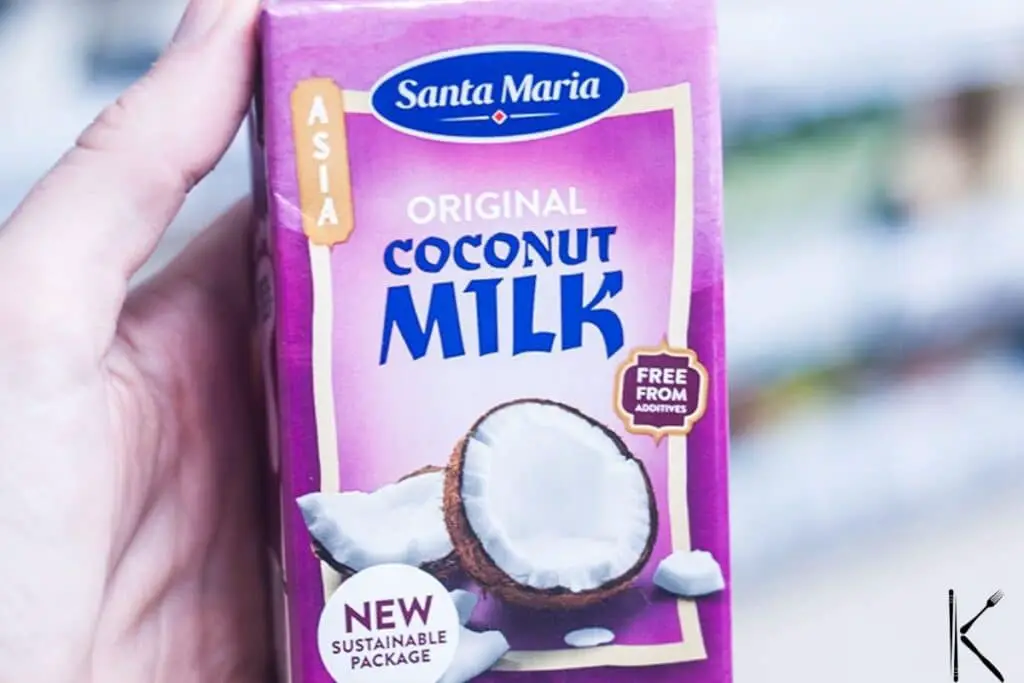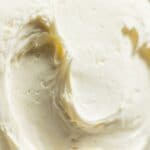Quick summary: Yes, coconut milk can go bad. Signs of spoilage include an off smell, mold presence, changes in appearance, and bloated packaging. Freezing leftovers is an option, though the texture and taste might be altered.
Don’t remember when you opened the coconut milk pack, and now you need it for the recipe? Here’s whether you can use it or not.
Except for the word milk, this coconut product has nothing in common with a dairy friend. In fact, it is an ideal substitute for all those who are lactose intolerant or vegan. Commonly, it is used a lot in cooking, but also in making various desserts. But how long can it stand on a shelf?
We must first clarify that there are different versions of coconut milk. Some are denser, some thinner with more water content. Some are packed in a can, and some in an aseptic tetra pack.
Among the cardboard packages, most are intended for storage on a regular shelf, but some need to be refrigerated immediately after production. How long this coconut nectar can be good for will depend on all this. Read on for all the details.
How Long Does Coconut Milk Last?
Typically coconut milk is a very durable product. After opening, the story changes, though, and the spoiling starts in a short time. Here are the time periods you can count on.
Unopened canned coconut milk
Packed in a can, coconut milk has the most extended duration. It will last for sure two years, and very likely up to five years if properly stored. There is not much risk of spoilage, and you can keep it in the pantry on a regular shelf. After the expiration date, it’s pretty much safe for another month or two.
Unopened aseptic packaging of coconut milk
Usually this type of coconut milk has a shelf life of about six months up to a year. Rarely longer than that. It will also be good for a few weeks after the expiration date but don’t keep your carton coconut milk longer.
Unopened refrigerated coconut milk
If coconut milk is in the refrigerator in the store, it means that it does not have the same durability as those shelf-stable ones. Here, the best guideline will be the date written on the package. And coconut milk may be suitable for up to a week after the expiration date but not too long.
Opened coconut milk
Once you’ve opened the coconut milk, it will last in the fridge for about a week, no matter what packaging it is. You should consume the contents within that period or throw the product in the trash. If you don’t remember when you opened the package, you’d better discard it.
There is an option to freeze coconut milk for up to one or two months of storage, but we must emphasize that the texture will be irreparably changed. It will have lumps, and even the taste will be somewhat different. But it should be safe to consume, so if you don’t mind the modifications, feel free to freeze your leftovers.
Can Coconut Milk Go Bad?
Coconut milk can be spoiled without any doubt. The chances are higher, of course, after opening because then the process of decay begins significantly faster.
Here’s how to tell if coconut milk is bad or spoiled:
Sign 1: Smell is off
The smell is always the number one indicator of spoiled coconut milk. Just like cow’s milk, coconut milk will take on a sour aroma, and you will feel that something is wrong. In that case, throw it away as soon as you notice changes in the smell.
Sign 2: Mold is present
Mold can also develop in coconut milk. You can notice it on the surface of the liquid or on parts of the packaging, especially around the cap. As soon as you see mold, be sure the product is spoiled.
Sign 3: Changes in appearance
The changes may be visible through a discoloration that will indicate spoilage. Likewise, if you notice any lumps or changes in texture, the milk is spoiled.
And essential for all long-lasting products, even before opening, if you see bloated packaging or strange protrusions on the can, throw away the product immediately. Canned coconut milk typically is more durable, but you must pay attention if the can is strangely damaged.
What Is The Best Way To Store Coconut Milk?
The way you store jelly will really make a big difference in durability. Aside from recommending keeping it in the fridge if you have room, some other little practices can help.
Tip 1: Keep in a cool place
Before opening, most coconut milk can stand on a regular shelf. Make sure the temperature is comfortable and not too hot. And that there are no heat sources nearby.
Tip 2: Seal well
After opening, the coconut milk must go in the refrigerator. Be sure to always remember to close the package nicely or move it to an airtight container. If you have a can, then pour the contents into a more suitable jar with a lid.
Tip 3: Freeze leftovers
If you know that you will not consume the rest of the product within a week, you can freeze coconut milk. This will extend the duration to a few months. Feel free to use the ice tray and create cubes of frozen coconut milk. This will make them easier to add while cooking for the dish’s creaminess.
FAQs
How can you tell if fresh coconut milk is bad?
You can tell if fresh coconut milk is bad by observing changes in its color, consistency, and smell. If it appears curdled, has an off-putting odor, or shows signs of mold growth, it’s best to discard it to ensure safety and quality in your cooking.
Is it okay to use expired coconut milk?
No, it’s not recommended to use expired coconut milk, as its quality and safety may be compromised. It’s safer to opt for fresh coconut milk to ensure the best results in your recipes.
Should you refrigerate coconut milk?
Yes, coconut milk should be refrigerated after opening to maintain its freshness and prevent spoilage. Be sure to transfer the contents to an airtight container and use it within a few days for the best quality.
How long can coconut milk last in the fridge?
Coconut milk can typically last for about 4 to 7 days in the refrigerator after opening, but its shelf life can vary depending on the brand and packaging. It’s best to check the label for specific storage recommendations and use it within the recommended time frame.
Conclusion
Coconut cream and milk is often recommended in many recipes when cooking savory or sweet dishes. It adds a fine creaminess to dishes and is suitable for lactose-intolerant people.
While not open, it has a reasonably long shelf life and can mostly stand on shelves in the pantry. Especially an unopened can. However, there are some versions of the product intended for refrigeration from the very beginning.
After opening, try to use the leftover coconut milk within a week. Or freeze the rest of the coconut nectar in the freezer and consume it over the next few months.
See more:









